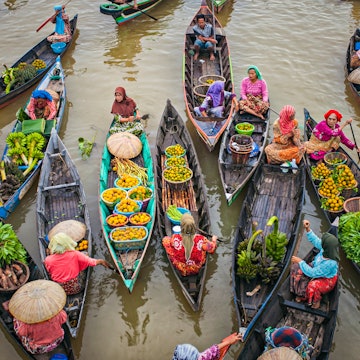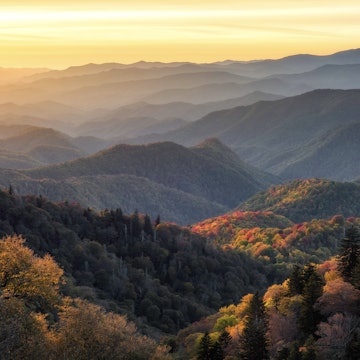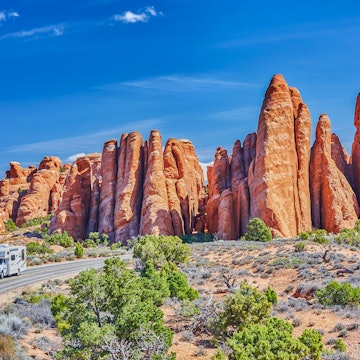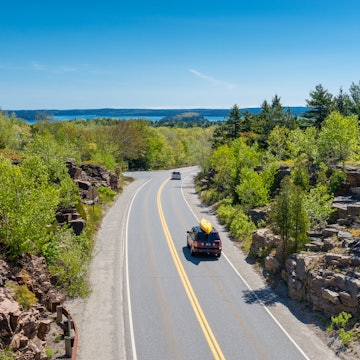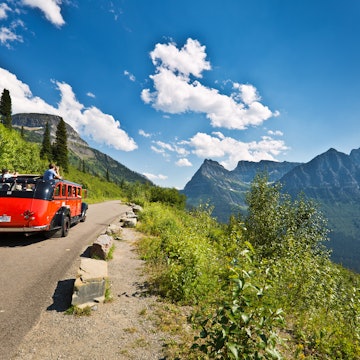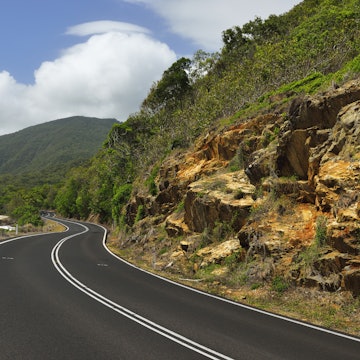

It might have a faraway feel, but Butterfly Island is actually part of the Indian mainland. Puneet Vikram Singh / Getty Images
For many a day at the beach wouldn’t be the same without a sun lounger and parasol; the ice cream stalls, volleyball courts and the steady stream of vendors peddling counterfeit sunglasses. For others, these are elements to be endured rather than enjoyed.
If you fall into the latter category then consider seeking out a wild beach on your next trip. Alongside alluring rural surrounds (and usually thinner crowds), these isolated coves often require undertaking an adventurous journey to reach them, be it trekking through dense jungle, steering a kayak through a tidal tunnel or driving a 4WD – adding to the overall fun.
To get you started, here’s five of our favourite wild beaches from around the world and details on how to reach them.

Refuge Cove, Wilsons Promontory, Australia
A peninsula jutting out into the Bass Strait at the tip of southern Australia, Wilsons Promontory is the kind of rugged, windswept terrain you’d least expect from down under. Yet its golden white sands are unmistakably Aussie, albeit with a more castaway feel.
The Prom, as locals fondly call it, boasts only one campsite accessible via road. This means reaching the area’s best beaches, including resplendent Refuge Cove, requires long, half-day hikes through thick jungle, with the option of an atmospheric overnight camp in the bush en route. It may sound like a lot of effort for a day at the beach, but one look at Refuge Cove and it’ll all feel worth it. Revive weary limbs on this narrow dash of white sand – once used as an anchorage for sailors seeking respite from hazardous storms – and paddle in the creek that curls inland through the lush greenery; there’s also a small campsite to spend the night here.
Best time to go: Avoid the summer holidays of mid-December to the beginning of February as The Prom is a popular Melburnian family vacation spot. It’s a maximum of two nights’ stay on campsites here, and it is recommended you book accommodation in advance (including overnights in the bush).

La Playa del Amor (Hidden Beach), Puerto Vallarta, Mexico
On the uninhabited Marieta Islands (an archipelago in Banderas Bay, Mexico) a perfectly circular, otherworldly giant hole in the grassy hilltop contains a perfect beach. It may now look like an incredible natural feature, but the formation was actually man-made – a surprising side effect of the government testing explosives in the region in the early 1900s.
Access to these protected island from the mainland is via boat, which can be organised by a handful of licensed outfits. Once there, the hidden beach can’t be reached from the surface, so visitors have to rent kayaks from local tour operators or swim through a 15m-long tunnel at low tide. Keep a lookout for the striking, aptly-named blue-footed booby, as their breeding grounds are nestled on the islands.
Best time to go: The beach is closed to the public on Mondays and Tuesdays. October has the best weather for snorkelling, but if you go in early December you can join in with local processions and music at the Festival of the Virgin of Guadalupe, which takes place in Puerto Vallarta, a good jump-off point to the islands.
Butterfly Island, Goa, India
The only way to reach this jungle-clad beach is either a hardy two-hour hike or, more serenely, by boat. The beaches at Agonda and Palolem are gorgeous swathes of sand, but popular with locals and tourists alike. To escape the crowds, simply call on a local fisherman to take you out on a soothing sail to ‘Butterfly Island’.
Indeed, the crescent curve of burnt orange sands and verdant forests give this beach the feel of some faraway, paradisiacal atoll, but this ‘island’ is in reality a secluded cove on the mainland directly between the two popular tourist spots. Pack lots of water, pick up some ice-cold Kingfisher Beer and fresh Goan snacks from a beach bar, and sit back in your tropical retreat, with only passing dolphins to keep you company.
Best time to go: Miss the day-long downpours in monsoon months between May and September, and opt for reaching the beach at sunset for the most dreamy golden vistas.

Carova Beach, North Carolina, USA
Buckle up: here’s a shoreline that can only be accessed by hiring a 4WD. Carova is the northernmost beach on the Outer Banks – a thin streak of land splintering off from the coast of North Carolina. Accompanied by wild horses and other four-wheeled revellers roaming the almost deserted beach, this is the coastal drive to rival all others.
North Carolina’s Highway 12 merges into the sand via a ramp, so you can saunter along the 13km of beach parallel to the sea towards Carova. Park up at your own private spot and breathe in the Atlantic air. If you’ve the energy you could surf or bodyboard, or opt for a windswept walk.
Best time to go: Because there are only a scattering of neighbourhoods nearby, holiday rental homes can go fast. Shoulder season – in the months either side of June, July and August – sees fewer visitors.

Anse Source d’Argent, La Digue Island, Seychelles
This isn’t your typical tropical hideaway: you need to trek through a vanilla and coconut plantation to reach these pink-hued shores in the Seychelles. It costs 100 Seychelles Rupees (approx. £6) to enter the L'Union Estate, which is well worth exploring before hitting the sands. You can see how copra (dried coconut kernel) is made at an on-site mill, and visit a cemetery where the first settlers on the island are buried.
When the heat starts to get too much, head in the direction of the giant rock formations and you’ll find your way to picture-perfect Anse Source d’Argent. Here, weathered granite boulders are nestled firmly in the rosy sands looking out over crystalline waters, and you can snorkel to catch a glimpse of giant tortoises gliding by. Once you’ve earned your place on this seaside slice of heaven, you’ll never want to leave.
Best time to go: Visit in June or September for breezy conditions and lower prices. It’s wise to pack some water shoes for climbing over rocks if you snorkel or swim here at high tide.
Get more travel inspiration, tips and exclusive offers sent straight to your inbox with our weekly newsletter.







